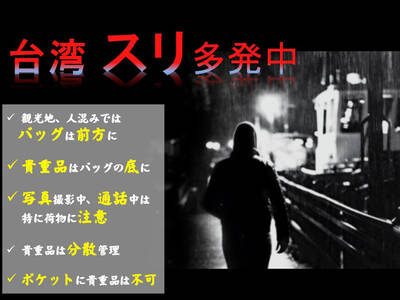The results of the US presidential election are not expected to significantly affect the US government's arms sales policy toward Taiwan, a think tank academic said on Tuesday.
Michael Swaine, a senior researcher of the Carnegie Endowment for International Peace (CEIP), made the remarks after attending a CEIP-sponsored seminar on China's military modernization and Taiwan's security.
The latest edition of Defense News, a US weekly, indicates that Taiwan has reiterated its desire to order US-made F-16 C/D fighter jets but is now facing an obstacle in striking a deal with the US.
The reports quoted US sources as saying the administration of US President George W. Bush is likely to approve the sale after the US presidential election in November next year and that should the Democratic Party win, it will be less sympathetic toward Taiwan.
Nevertheless, Swaine said, no matter which party comes to power, US arms sales policy will be consistent in supplying Taiwan with sufficient defensive weapons.
Swaine also said the US government is not expected to link its sales of F-16s to President Chen Shui-bian's (陳水扁) plan to push for a referendum on Taiwan's bid to join the UN under the name "Taiwan" alongside next year's presidential election.
Responding to Chen's plan unveiled last month, US State Department Spokesman Sean McCormack said that "the United States opposes any initiative that appears designed to change Taiwan's status unilaterally. This would include a referendum on whether to apply to the United Nations under the name of 'Taiwan.'"

The Japan-Taiwan Exchange Association has cautioned Japanese travelers to be vigilant against pickpockets at several popular tourist spots in Taiwan, including Taipei’s night markets, the Yongkang Street area, Zhongshan MRT Station, and Jiufen (九份) in New Taipei City. The advisory, titled “Recent Development of Concerns,” was posted on the association’s Web site under its safety and emergency report section. It urges travelers to keep backpacks fully zipped and carried in front, with valuables placed at the bottom of the bag. Visitors are advised to be especially mindful of their belongings when taking photos or speaking on the phone, avoid storing wallets and

ENDORSING TAIWAN: Honduran presidential candidate Nasry Afura said that Honduras was ‘100 times better off’ when it was allied with Taipei The Ministry of Foreign Affairs yesterday said it would explore the possibility of restoring diplomatic relations with Honduras based on the principle of maintaining national interests and dignity. The ministry made the remarks in response to reporters’ questions regarding an article titled: “Will Taiwan Regain a Diplomatic Ally?” published in The Diplomat on Saturday. The article said Honduras’ presidential election in November could offer Taiwan the chance to regain an ally, as multiple candidates have promoted re-establishing diplomatic relations with Taiwan. Honduras severed diplomatic ties with Taiwan in March 2023 in favor of Beijing, but since switching its diplomatic recognition,

Scoot announced yesterday that starting in October, it would increase flights between Taipei and Japan’s Narita airport and Hokkaido, and between Singapore and Taipei. The low-cost airline, a subsidiary of Singapore Airlines, also said it would launch flights to Chiang Rai in Thailand, Okinawa and Tokyo’s Haneda airport between December and March next year. Flights between Singapore and Chiang Rai would begin on Jan. 1, with five flights per week operated by an Embraer E190-E2 aircraft, Scoot said. Flights between Singapore and Okinawa would begin on Dec. 15, with three flights per week operated by Airbus A320 aircraft, the airline said. Services between Singapore

A fourth public debate was held today about restarting the recently decommissioned Ma-anshan Nuclear Power Plant, ahead of a referendum on the controversial issue to be held in less than two weeks. A referendum on Aug. 23 is to ask voters if they agree that “the Ma-anshan Nuclear Power Plant should continue operations upon approval by the competent authority and confirmation that there are no safety concerns.” Anyone over 18 years of age can vote in the referendum. The vote comes just three months after its final reactor shut down, officially making Taiwan nuclear-free. Taiwan People’s Party Chairman Huang Kuo-chang (黃國昌) represented